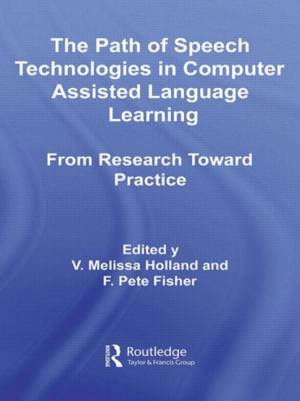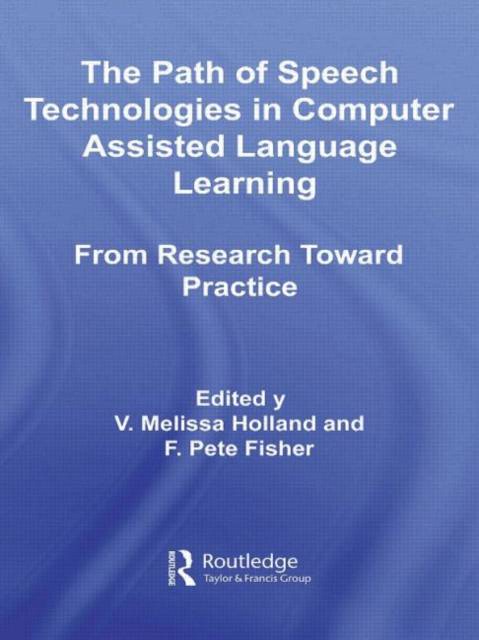
- Retrait gratuit dans votre magasin Club
- 7.000.000 titres dans notre catalogue
- Payer en toute sécurité
- Toujours un magasin près de chez vous
- Retrait gratuit dans votre magasin Club
- 7.000.0000 titres dans notre catalogue
- Payer en toute sécurité
- Toujours un magasin près de chez vous
The Path of Speech Technologies in Computer Assisted Language Learning
From Research Toward Practice
Description
This collection examines the promise and limitations for computer-assisted language learning of emerging speech technologies: speech recognition, text-to-speech synthesis, and acoustic visualization. Using pioneering research from contributors based in the US and Europe, this volume illustrates the uses of each technology for learning languages, the problems entailed in their use, and the solutions evolving in both technology and instructional design. To illuminate where these technologies stand on the path from research toward practice, the book chapters are organized to reflect five stages in the maturation of learning technologies: basic research, analysis of learners' needs, adaptation of technologies to meet needs, development of prototypes to incorporate adapted technologies, and evaluation of prototypes. The volume demonstrates the progress in employing each class of speech technology while pointing up the effort that remains for effective, reliable application to language learning.
Spécifications
Parties prenantes
- Editeur:
Contenu
- Nombre de pages :
- 256
- Langue:
- Anglais
- Collection :
Caractéristiques
- EAN:
- 9780415543002
- Date de parution :
- 23-02-12
- Format:
- Livre broché
- Format numérique:
- Trade paperback (VS)
- Dimensions :
- 152 mm x 229 mm
- Poids :
- 367 g

Les avis
Nous publions uniquement les avis qui respectent les conditions requises. Consultez nos conditions pour les avis.





